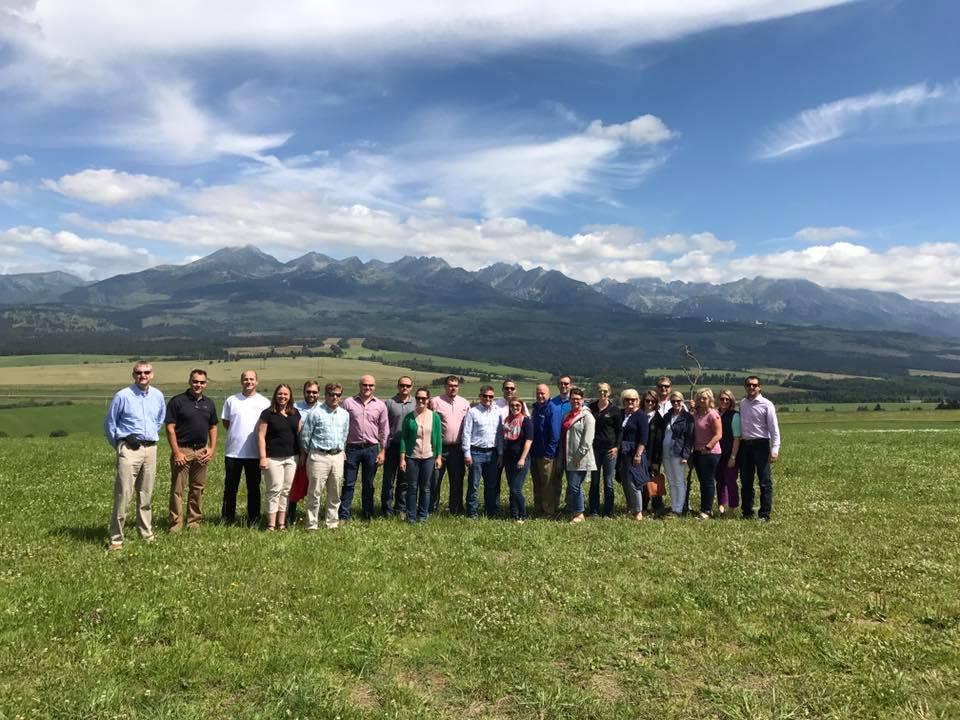Seminar Basics
The program consists of ten seminars, including trips to Frankfort, Washington D.C, Kentucky agribusinesses, and a visit agriculture in another state(s), along with an international trip which is selected with input from the participants. Kentucky based seminars will be conducted at various locations across the state. Educational (non-travel) seminars are 2-4 days in duration. Seminars generally occur once a month in January, February, March, July, October, November, and December. In-class seminar topics focus on:
- Leadership, Communication, and Management Skills
- Understanding the Political Process at the National, State, and Local Levels
- Agricultural Issues and Policies

Travel seminars include:
- A five day domestic travel seminar to Washington D.C. to learn about the federal public policy process and to interact with national leaders and government agencies.
- A five day domestic travel seminar to another state to visit with farmers and ag leaders to better understand their agricultural economy, issues and challenges (budget permitting) Previous classes have visited the central valley in California, Missouri, Indiana, Illinois, New York, Pennsylvania, Virginia and Tennessee.
- A 12-14 day international travel seminar to visit a major agricultural producing region of the world that is a competitor of Kentucky and U.S. agriculture. In addition to observing agriculture in another country, the international seminar exposes participants to differing cultures and customs and allows class members to grasp a better understanding of the effect that globalization is having on the U.S. agricultural and overall economies. Previous classes have traveled to Brazil, Argentina, Chile, Mexico, New Zealand, Austria, Slovakia, Poland, Czech Republic and South Africa.
Other Seminar Information:
- Facilitation - Each participant will serve on a rotating basis as a facilitator for a seminar session. Duties will include introducing the speaker, assisting directors in regulating the day’s activities (including policing classmates not adhering to participant expectations), taking photos for social media, and facilitating questions/discussion.
- Rooming Assignments - Participants agree to share a room with a class member of the same sex on a rotating schedule with the exception of the seminars involving spouses.
- Spouses/Partners - Spouses and domestic partners are an important part of this program and thus need to be knowledgeable about the program and supportive of their partner. By agreeing to their partner’s participation in this program, they are making a sacrifice which ideally will benefit their relationship, their community, and agriculture. Spouses/partners (but no other family members) will be invited to participate in the second seminar and graduation at the program’s expense. However, spouses, partners, or other family members are not allowed to attend other seminars.
